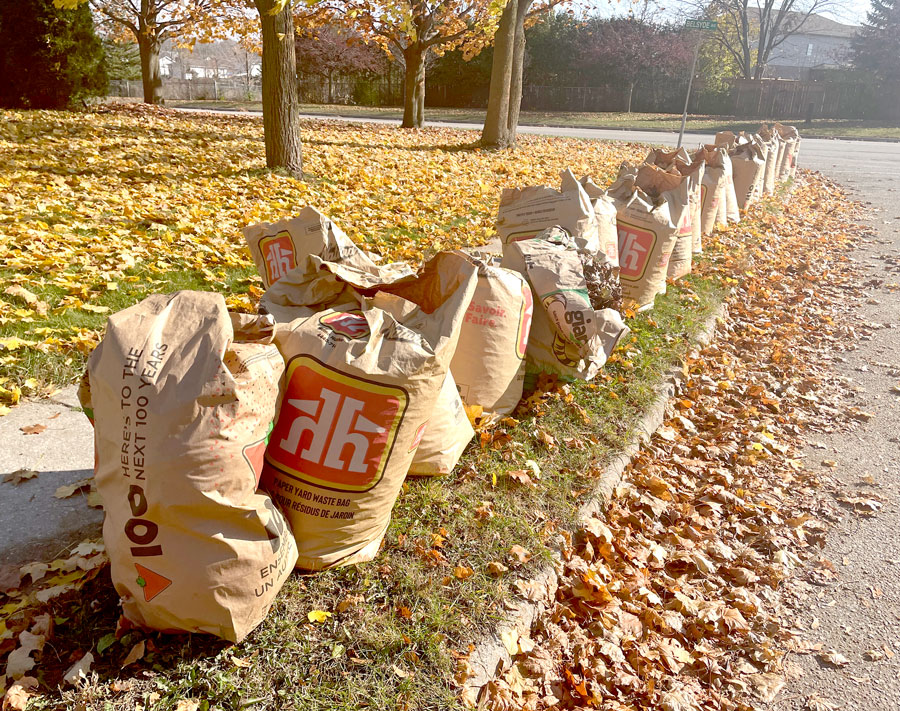GUELPH – Wellington County solid waste services (SWS) division is headed for a half-million dollar budget surplus in 2022, but those funds and more may be needed to cover increased expenditures next year.
A report from SWS manger Das Soligo indicates a strong market for recycled materials is boosting the current financial picture.
“The strong recyclable material commodity markets accounts for the variance to this point, though recent information indicates a significant correction to these prices in recent months. While it remains difficult to determine the extent of any variance to this budget given the significant market fluctuations, staff expect a positive variance between $500,000 and $600,000 by year-end,” the report states.
At the Oct. 27 Wellington County council meeting, SWS chair councillor Gregg Davidson braced council to expect increased collection costs next year.
“We could be seeing a significant inflationary increase to our collections contracts, somewhere around $800,000, next year, so it’s going to affect our upcoming budget,” said Davidson.
The county currently contracts out collection of waste and recycling to Waste Management.
“Even though we have a surplus now, this year… we’re looking at possible big increases for the following year,” he added.
Councillor Mary Lloyd said the increase seemed excessive, even given current inflation rates.
“I’m somewhat distressed … that we are facing close to 13% rise in our Waste Management contract due to inflation, when the rates globally are much less in inflation. It could be seven to eight per cent inflation. So what is the justification for being so much higher than that when we are using natural gas vehicles that have not seen the rise in fuel costs the same as gas?” Lloyd asked.
“We had a discussion at the committee level as well,” said Davidson, adding, “I know that staff, we’re going to go back to them, Waste Management, to see what the actual number is.
“I was talking to Mr. Soligo last week and it was suggested to him that the 13% is actually a low number. That it could be much higher, the cost being turned over to the municipalities, but they kept it low,” Davidson noted.
County engineer Don Kudo explained the county’s contract with Waste Management is indexed to both the Consumer Price Index and the Canadian industry index for fuel.
“That’s what’s being used for escalation. That was part of the 2018 bid specifications and that calculation is what turned out to be the 12/13 per cent,” Kudo stated.
Councillor Earl Campbell pointed out that since the current contract was implemented, the company has switched from diesel to natural gas vehicles.
“I’m hoping that the index that we’re using is actually reflecting natural gas prices, as opposed to diesel prices,” said Campbell.
“That was a question that came up as well at committee and Mr. Soligo was tasked to go back to them and ask him about that specific thing, because we switched over from natural gas to diesel,” replied Davidson.
“The other thing with that, it wasn’t just our fleet. Waste Management converted their entire fleet to a … system based on natural gas, so using the diesel prices seems a little disingenuous. But if that’s within their contract, it might be something to negotiate,” said councillor Jeff Duncan.
“So what I hear is that staff will get back to council about that later,” said Linton.
Councillor Chris White suggested the projected cost increase also includes other factors.
“Some of the services are bid, right? So you’ve got organic pickup and you’ve got yard waste. And I just know, from our experience … the amount of leaves far exceeded what I think anybody thought would initially be there. So, I’ve got to believe some of that pressure on the contract is you price this out because you think it looks like this and then you deliver the service for a couple years and you get a more realistic number,” said White.
“I think that might be a piece of it … It’s not just inflation. I think … some of the newer services are still a little unknown,” he added.
“They did have to add more trucks for the yard waste than they initially thought they would need,” Davidson noted.




